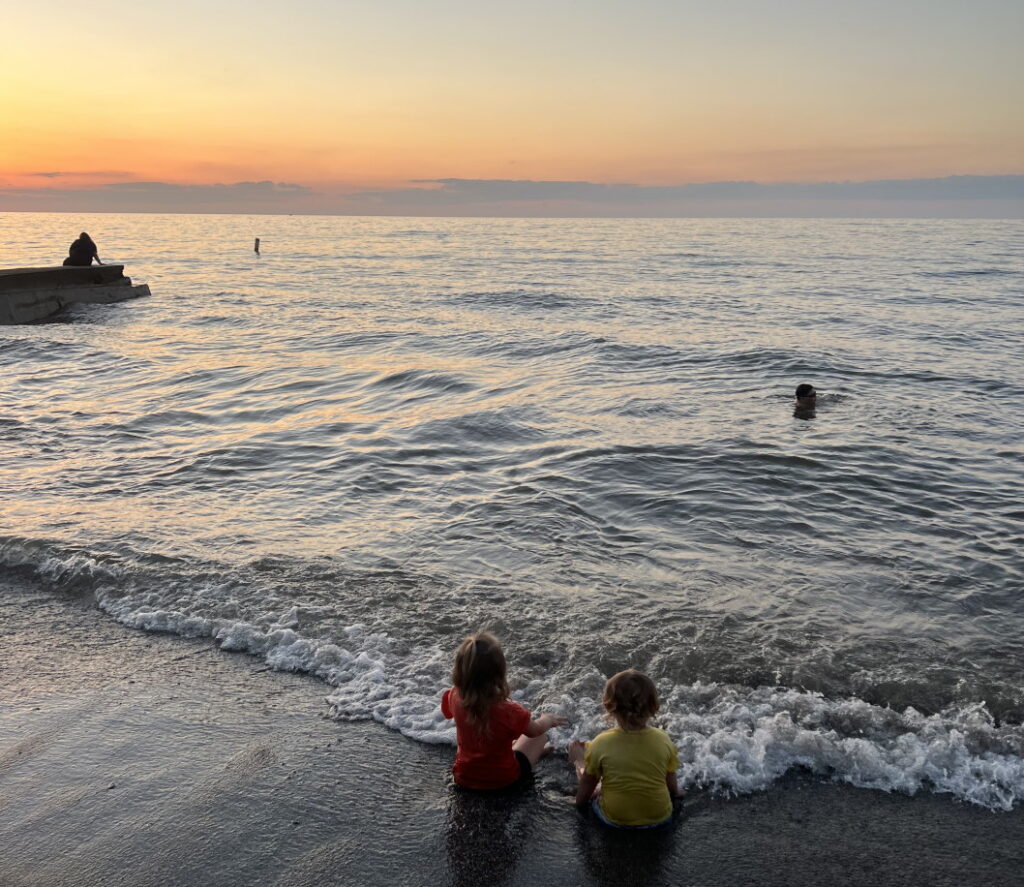In today’s world, you will see a lot of reactive parents. This means instead of actively being a parent to their child they react to their child’s behavior.
A common reason for this is technology has invaded our life. I’m just as guilty of this as any other parent. It becomes such a bad habit to pull out my phone and mindlessly scroll through Facebook or Twitter while your kids play.
Then once they do something wrong you lash out at them and punish them.
Was it their fault?
It depends on what they were doing.
But I would argue it was your fault.
Maybe you forgot to set boundaries.
Maybe you forgot to establish your expectations.
And while you were on your phone tuning them out they set their own boundaries and now you are the one who is upset.
But an active parenting style can help remedy this. We can be proactive instead of reactive to our children to get them to behave better.
How do you become an active parent?
Nurture your children’s self-esteem

Photo by Brian Gordillo on Unsplash
Your children need to feel good about themselves. When they are young this is the best time to bolster their self-image. If you have girls and they show you a new dress tell them how pretty they are. If you have boys and they are dressed up for church remind them that they are so handsome.
Children need to know that they are loved, by nurturing their self-esteem you reinforce that connection that you love them and value them. This will carry on throughout their lives into adulthood.
Don’t compare children to each other either. This one is hard to do if you have a child that is clearly behaving better or is just better in sports or academics. Find what that other child does well and focus on that.
Don’t compare yourself to your children. This is one of my weaknesses. I think about how I did things at my child’s age and wonder why they are not there yet. But every child grows and learns at different rates so don’t put pressure on them by saying things like “When I was your age I could do X”.
Never put your child down. Sometimes kids can be jerks. And they will do things that will just make you steaming mad. But in no circumstance is it a good idea to put your child down and degrade them.
Take your children seriously
Being a parent isn’t just about your kids listening to you. You need to listen to them also. Part of being an active parent is actively listening to what your kids are saying. It’s really easy to be dismissive because they are just kids. But sometimes your child has something really important to say.
Pay attention to their opinions. Kids may misbehave and not want to act accordingly because you never value their opinion. If you don’t get their input and you are always going against what they want, why would they listen to you?
Take their concerns seriously. If your child says they don’t like someone or someone is making them feel uncomfortable don’t ignore that. Kids have really good intuition and if someone gives them bad vibes try to reduce their contact with them.
Listen to their ideas. It’s amazing what ideas my 10-year-old comes up with. Sometimes they are a little crazy and out there, but other times he comes up with some really great ideas. If you always ignore their ideas then you might really hurt their self-esteem.
Share power with your child

Give your child the opportunity to make choices. One of the easiest ways to start this is by planning your dinners.
You plan your menu so that they have a few good choices and you ask them this:
Would you like cheeseburgers tonight? Or Hamburger Helper? Or Tacos?
Now you don’t have to give choices every night. But this is a great place to start.
Another place that we give our kids a say in choices is we do a family night every Friday night where we go out to eat and then spend time together afterward. We rotate through each person in the family and they get to choose where we go out to eat. Even the little ones get a turn.
Let your child know that you are listening when they make choices or offer suggestions. Don’t ignore them or chastise them and make it seem like the input they offered was not worth your time. Be open to their suggestions.
If kids make mistakes, let them. Kids will often make mistakes and will make bad decisions. Unless the decision is going to cause them harm or someone else harm they have to learn that decisions and choices have ramifications. Just make sure and explain why the decision they made wasn’t the best option on the table.
Don’t overwhelm them with decisions though. If you give them too many choices they might get overstimulated or might go into an indecisive state where you get no answer from them.
You must control the decisions you give them.
Don’t do anything for your child that he can do for himself
Children need to learn to do things for themselves it’s a way of building self-esteem. And the quicker they learn to do things for themselves the more it frees up your time and lessens the frustration in your life.
Kids who learn things on their own take pride in what they learn. One of my favorite things to hear is “I did it all by myself”. Sometimes that can be scary because you worry they didn’t do it properly. But just praise them and don’t correct them immediately.
This is a great way to teach responsibility to your kids also. If they know how to do then they can do it on their own and learn that they are responsible for the chore or getting dressed or whatever else it might be that they learned.
Teaching kids self-control is also a great way to be an active parent. Don’t wait until they have outbursts or they go into a store and touch everything. Teach them to control themselves so it will be a natural habit.
Establish clear limits and enforce them with loving discipline

Photo by Allen Taylor on Unsplash
One of the key factors of active parenting is establishing clear limits. If you don’t let your kids know what the boundaries are how are they going to know when to stop?
Think of them as guardrails. Just like guardrails on the highway keep your car on the road but you wouldn’t want to run into them. Teach your kids what the rule is and be very clear. If you have to have them repeat the rule back to you.
Then be consistent in enforcing the limits you set. If you let them slide one time but are harsh on them the second time they break a rule then you are sending mixed messaging.
Don’t be too hard on them when it comes to punishment. Use age-appropriate guidelines to match the punishment to their mental capacity. You might have an 8-year-old sit in time out for 15 minutes, but that wouldn’t work on a 2-year-old.
Encourage your children to share their feelings and listen respectfully when they do
Another key active parenting skill is to listen to your kid’s feelings. Often times as adults we think kids should just behave well all the time. But sometimes they don’t feel well or sometimes they are confused.
Think about this scenario:
How do you feel for the rest of the day when you don’t get a lot of sleep (probably because of the kids)?
Probably a little grumpy. Maybe a little agitated. You might even lash out at someone else.
What about when someone hurts your feelings and makes you angry? Are you a bucket full of sunshine to everyone you meet? Probably not.
Then why do we have these expectations with our kids? When kids are hungry or tired they do stupid things. We have to get used to that and understand there is a root cause.
Listen to your child when they share their feelings. You can tell pretty quickly if they are putting on a show or if what they are saying is true. Don’t interrupt them and don’t judge them while listening to them. Letting them know what they have to say is important.
If you don’t listen respectfully they may not continue to give you their true feelings in conversation.
Find alternatives to punishment that encourage positive behavior

Photo by Aaron Burden on Unsplash
The easy way to parent is to wait until your child messes up and then punish them. But that is not always the most effective way.
Instead, try setting goals for your kids. Using the SMART goals formula not only works for adults but can be great for kids.
S: Specific – be very specific on the expectation
M: Measurable – Try if you get at least all As and Bs on your report card you can do X.
A: Attainable – Never set goals that your kids won’t achieve. If you know your kid is not a straight A student don’t set that as a goal
R: Relevant – Make sure they are relevant, especially to their age level.
T: Time-bound – Leaving goals open-ended is never a good thing.
The hard part of doing this is what happens if they don’t achieve those goals. My advice is to look at the process.
Did they do better or worse after setting the goals? Did they even make an effort to achieve the goals?
If there was no effort then punishment might be necessary. But if they did make an effort but didn’t achieve the goals then sit down with them and examine why they missed the goal and what changes can be made to do better the next time.
It’s hard, but it is possible to be both a parent and a friend.
With active parenting, you are not going to be just a friend. You will be both a parent and a friend. It’s hard to be both but if you’re a parent all the time then you are being reactive and not proactive as a parent.
You have to set limits and enforce them. As said earlier, you need to set expectations when doing active parenting. Without them, your kids won’t know where the boundaries are.
You have to let them know there is a time to be serious and a time for fun. Parents can be fun and be that friend. But parents must also put their foot down and be the bad guy.
Stay consistent and always be fair. They will come at you with “this isn’t fair” or “you hate me” when you have to be the parent. But know when to show them compassion and know when to stick to your rules.
And above all be loving in all that you do with your kids. It doesn’t matter if you have lost your mind over something they have done. Remember to be patient and show love at all times.
Active parenting is a learned skill. The younger in your child’s life you do it the more natural it will become. If you try to do the change too late in life it might be a hard habit to get into.
Just remember that being proactive rather than reactive is always the best advice. Whether it is in your job or dealing with your kids being proactive is the better route.
What are your thoughts on being an active parent? Have you tried these active parenting styles before but never realized it was called this? If so let us know on our Facebook page.

[…] Active parenting styles […]